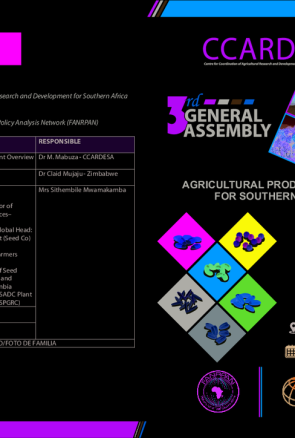
Seeds are at the core of food production, and the seed regulatory framework covers a wide spectrum of activities within the agricultural sector. The activities that seed policies and law cover include seed testing, certification, variety release, and registration, phytosanitary measures, and plant breeders’ rights or plant varieties protection. The manner in which each of these activities are regulated by existing policies and the law has a profound effect on the outcome of seed production, availability, accessibility and ultimately how national and regional agricultural systems are shaped. In Sub-Saharan Africa’s context, the seed regulatory framework has to take cognisance of the unique characteristics and context of small-scale farmers who constitute the majority within the farmers’ constituency, yet they are often marginalised in policy discussions.
SADC’s efforts to advance the Harmonised Seed Regulatory System (HSRS) have been ongoing since Member States began discussing the harmonisation of seed laws in 1988 and the Memorandum of Understanding (MoU) on implementing the HSRS was approved in 2009. Over two-thirds of SADC Member States have signed the SADC HSRS MoU since 2009. However, regional seed policy harmonisation is progressing slowly in some countries, including Phase 1 and Phase 2 countries under the World Bank supported Agricultural Productivity Programme for Southern Africa (APPSA). With continued efforts channelled towards technology generation programmes aimed at improving national and regional agricultural productivity, while countries have not fully domesticated the SADC and/or COMESA HSRS will most likely result in negative returns to investment and limited contribution on food and nutrition security.
In collaboration with the Food, Agriculture and Natural Resources Policy Analysis Network (FANRPAN), CCARDESA will convene a side event during the Africa Agricultural Science Week (AASW) to discuss the extent to which SADC countries have domesticated the SADC/COMESA Harmonised Seed Regulatory Systems (HSRS). The discussions will be based on findings of a regional study commissioned by CCARDESA to identify gaps and bottlenecks in selected SADC countries’ seed policy and regulatory frameworks and propose pragmatic recommendations to effectively integrate seed policy harmonisation issues into national programming.








